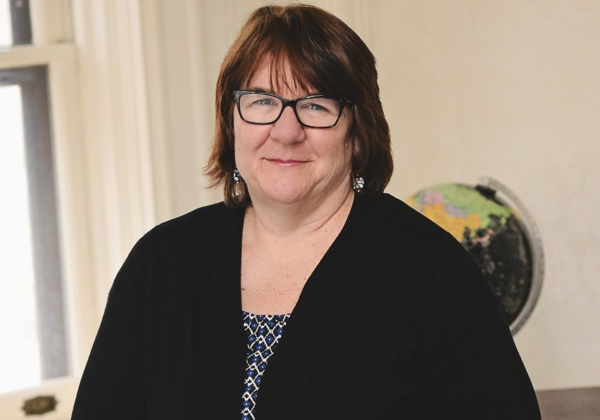
Jill Claxton
Director of Evaluation HighScope Educational Research Foundation
Expert
No One is Coming to Save Us is a four-part series that zooms in on America’s childcare crisis and the people caught up in it. Hosted by Gloria Riviera, and “Call it Like it Is” Special Correspondent Kristen Bell, the podcast features parents, educators, providers, advocates, researchers, and policymakers on the front line of change. Presented by Lemonada Media and Neighborhood Villages, it launched in May of 2021 in the top 15 of all podcasts. Trust for Learning sponsored the production alongside other funders.
Tune in and let us know what you think on social media using hashtag #NOICTSU!
“We deny huge swaths of our population access to the kind of environment that they would feel good about during that time of development.” – Gloria Riviera
In the first episode of NOICTSU, host, Gloria Riviera goes deep on the fragmented systems that make childcare a crisis for everyone: “Parents are languishing on waitlists or drowning in tuition bills; teachers are underpaid, and; providers can barely afford to keep the lights on.” The episode also features Lauren Kennedy and Sarah Muncey from Neighborhood Villages, and parents, teachers, and administrators from Ellis Early Education Center in Boston, MA.
Is this really what we ask of women so that we can propagate? – Sarah Muncey
The whole way we do child care in this country felt very broken. And then the pandemic hits. And what was hard became impossible.– Gloria Riviera
Going down memory lane, the second episode of NOICTSU provides historical context about early childhood care and education in the U.S. Kristen Bell commented on Richard Nixon’s administration’s veto of Walter Mondale’s comprehensive Child Development Act of 1971. Historian Sonya Michel explains how the four D’s (when husbands were drunk, disabled, deserted, or dead) helped spark the creation of the first formal child care institutions called day nurseries. And historian Dorothy Roberts lays bare the racist history of childcare.
Radical change gets blocked by these racist divisions that make it seem as if women of different races don’t have common interests in an adequate childcare system at the United States. – Dorothy Roberts
At the heart of welfare reform is this idea that impoverished mothers should not care for their own children, plain and simple. And instead of supporting poor families, the federal government often monitors and investigates them, which in and of itself presents yet another childcare challenge.” – Gloria Riviera
In the third episode, Kristen Bell joins Gloria Riviera for a brief meditation about what’s possible in childcare, drawing from examples around the world. Listeners travel with her around the world (Berlin, Germany, Quebec, Canada, and even Patagonia HQ in Ventura, California) where systems are in place to ensure that children and parents have access to high-quality childcare. Pierre Fortin, Canadian economist, and professor at the University of Quebec, Montreal, comments on the economic implications of Quebec’s universal low fee childcare system. Linda Smith, from Bipartisan Policy Center, provides insight on the military’s “not so covert” childcare program. Jenna Johnson, the head of Patagonia., explains how the organization provides subsidized childcare for their employees and the effect on turnover and work culture.
…we’re able to focus on being good parents, not how to afford to be good parents. – Caitlin Vestal (Parent, Berlin, Germany)
Preschool should not be the privilege of those who can afford it. It should be the right of every single family. And I don’t mean preschool starting at three, I mean preschool that begins at birth. – Lauren Kennedy
“…we know that if you want families to thrive, they can’t be stressed and they can’t be worried. Our whole ethos is that this is the hardest time in someone’s life as a family, zero to five. It is like the rush hour of your life.” – Sarah Muncey
The final episode systematically lays out concrete and strategic steps to advocate for public investment in a high-quality, affordable, equitable U.S. childcare system. Gloria Riviera shares the nitty-gritty of ECE campaigns with political advocates and activists, like Senator Elizabeth Warren, Theresa Ramos, Vice President Public Policy and Advocacy at Illinois Action For children, Emily Von W. Gilbert, an organizer at the Portland chapter Democratic Socialists of America, and Mark Holloway, former CEO OF Social Venture Partners.
…you do have the power to change things. …The only thing that guarantees that you lose is if you just stop and give up. If you want the world to be better, … there’s still something that you can do… – Olivia Pace (ECE Teacher)
We learned a lot as a partner to the production team. Please listen, share, and let us know what you think!
Trust for Learning's listserv is the best way to stay connected to new resources and tools for parents and early childhood educators of all kinds. Please join us in our efforts to make the ideal real for every child!